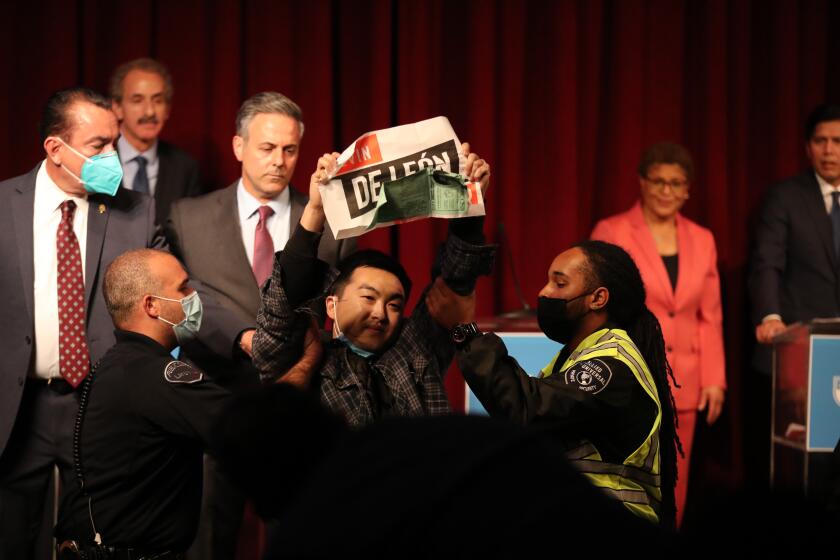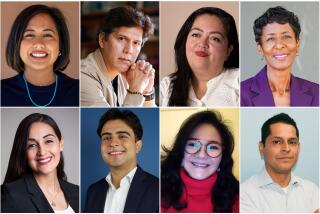Caruso, homelessness, protesters: Takeaways from the L.A. mayoral debate
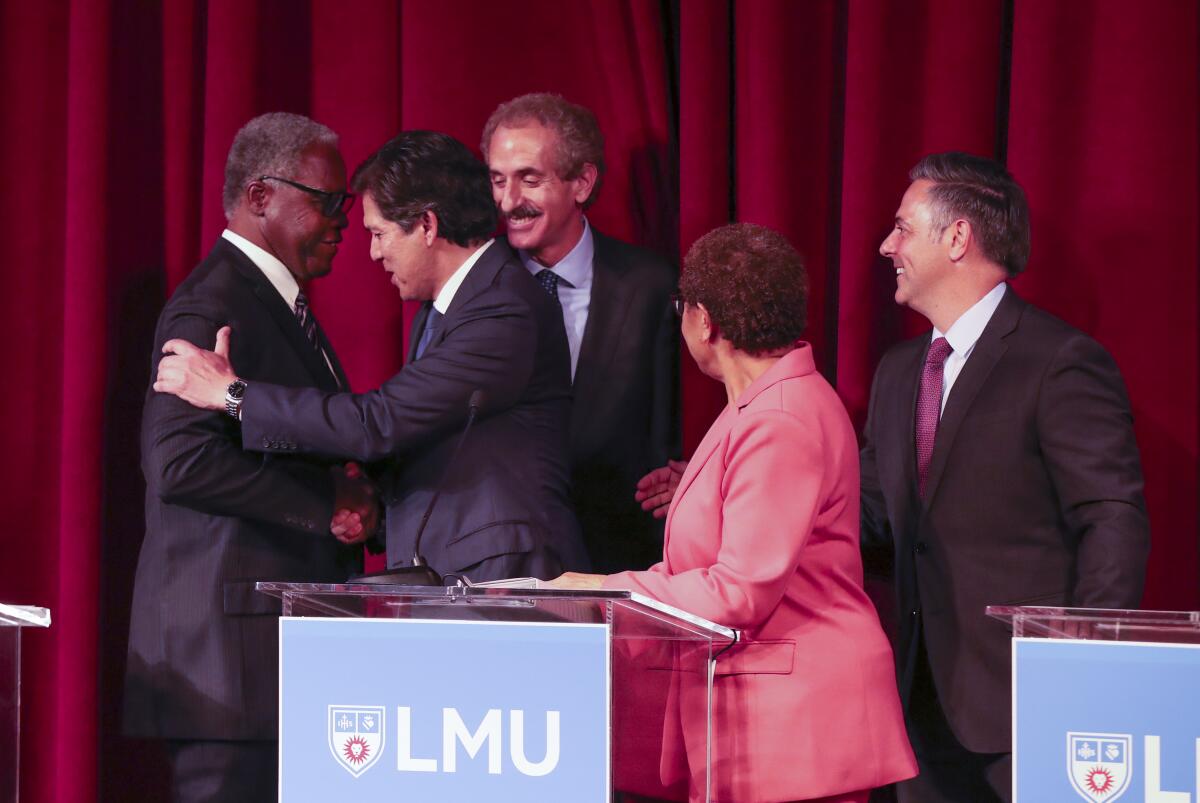
Tuesday night’s Los Angeles mayoral debate at Loyola Marymount University didn’t offer much in the way of fireworks from the stage. However, plenty of fireworks came from the audience. Here are five takeaways from the event:
Caruso is a presence, even when absent
Candidate Rick Caruso missed the debate because of a scheduling issue, according to his team, but that didn’t stop City Councilman Joe Buscaino and City Atty. Mike Feuer from taking shots at the developer.
Buscaino accused Caruso of being anti-union because he donated to Proposition 75, a failed 2005 ballot measure that would have barred unions from spending members’ dues on political campaigns. For his part, Feuer brought up sexual assaults that women reported at USC, and accused Caruso, the former chair of USC’s board of trustees, of failing to keep students safe.
The attacks on Caruso show how much of a threat he is to the field. A UC Berkeley Institute of Government Studies poll, co-sponsored by The Times and conducted before Caruso got into the race, showed the developer and Councilman Kevin De León trailing Rep. Karen Bass, the leader at 32%, with both men receiving 8% of the vote.
Caruso said he was being attacked on 17-year-old political contributions that went to a package of ballot propositions. Given the U.S. Supreme Court’s Citizens United decision, allowing unlimited corporate contributions to campaigns, Caruso said he believes that unions “should have the right to use every tool at their disposal to even the playing field.” He also called Feuer’s attack “not accurate.”
Homelessness is the issue of the race
Candidates talked a lot about homelessness, and while there were some differences in how they planned to tackle the crisis, it was hard not to notice some rhetorical similarities.
Likening it to an earthquake. Desiring a FEMA-like response. Calling for more services and more creative solutions to create housing.
Candidates for L.A. mayor took aim at developer Rick Caruso, who was absent from Tuesday night’s debate. The event was interrupted several times by protesters.
These sorts of talking points predate this race, and one candidate — Feuer — noted how he’s called for an emergency response for many years. He also suggested the other candidates were parroting his ideas.
Activists know how to interrupt a debate
Despite a newly passed law intended to stop protests outside politicians’ homes, Tuesday’s debate made clear that the protesters will continue to seek out elected officials.
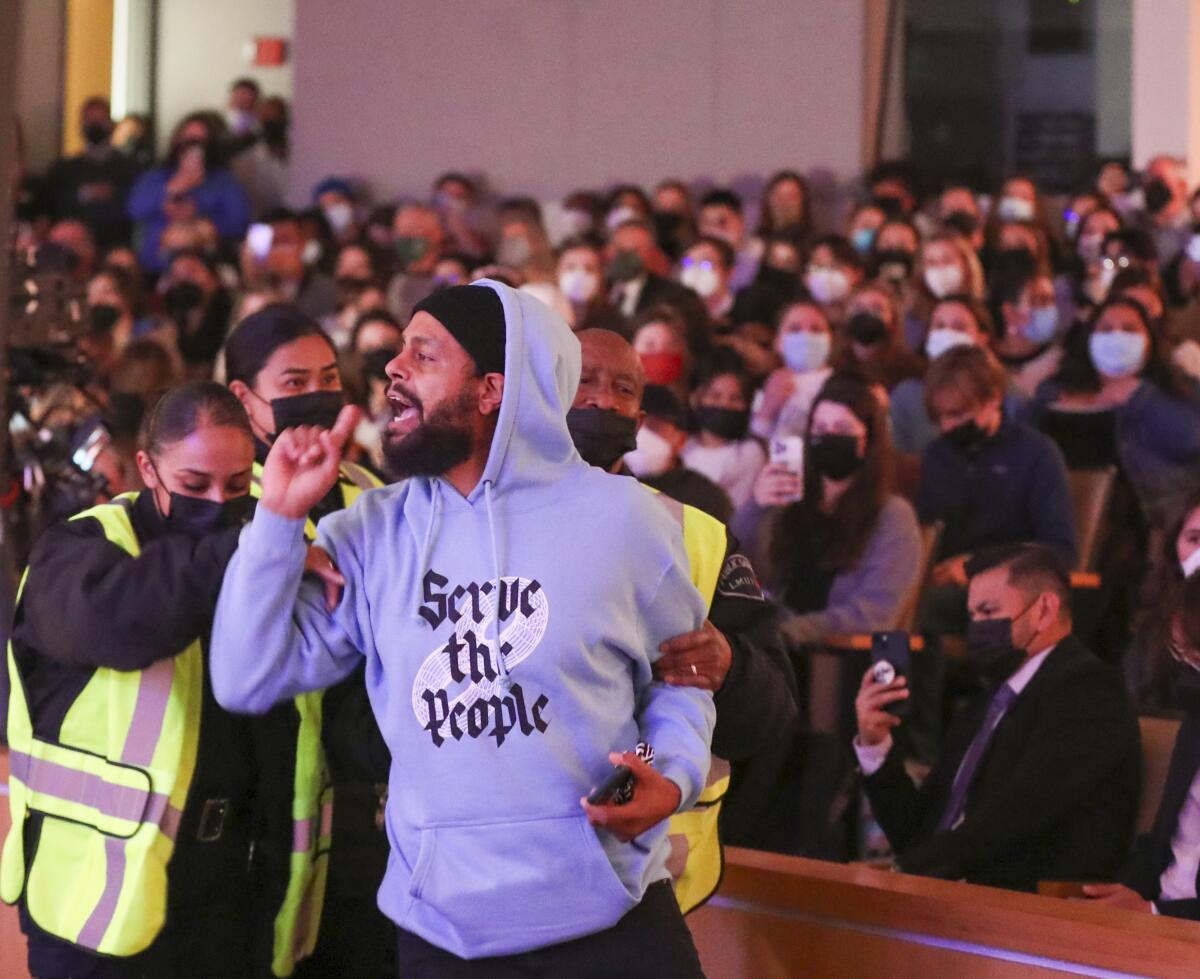
The protesters’ approach — to individually stand up, at different intervals, in order to continually disrupt the flow of the debate — was reminiscent of when Mayor Eric Garcetti was forced to halt a speech at USC in 2018 after demonstrators in the audience wouldn’t stop shouting at him.
The demonstrators criticized Bass for her public safety plan and yelled at De León over his work on homelessness.
Candidate Mel Wilson addressed the disruption at one point during Tuesday’s debate, saying that “people have a right to speak, but speak orderly.”
“Being a public official, I’m well familiar with this process. ... That’s the way the world is right now,” Feuer said after the debate.
They mostly want to expand the LAPD
Almost all of those onstage have promised to expand the ranks of the Los Angeles Police Department — currently budgeted at about 9,700 officers and staffed at about 9,500 — using an array of methods.
De León was the only candidate to say he would maintain the ranks at present levels.
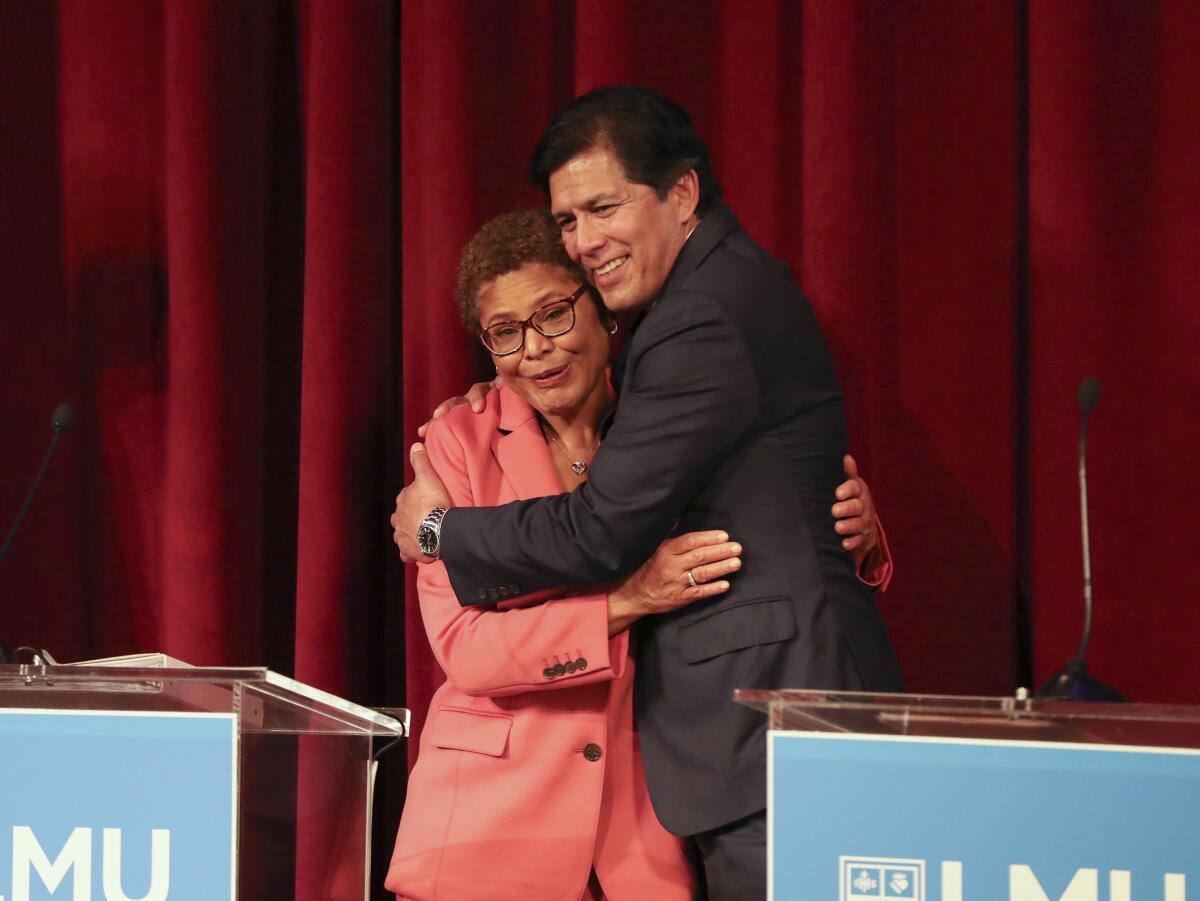
Bass has promised to add 200 officers, while Buscaino wants to see the force grow to 11,000 sworn officers. They all leaned into varying parts of their respective public safety plans. For example, Feuer said public officials needed to take a hard look at the reforms around cash bail.
Buscaino talked up his time working as an LAPD officer and said that there should be further investments in the Community Safety Partnership program. Bass also said she wanted to open an office of community safety that would focus on funding “truly community-based prevention programs.”
A lesser-known candidate differentiated himself from the pack
Wilson, a San Fernando Valley real estate broker and former member of the Metropolitan Transportation Authority board, was the least known of the five candidates onstage.
But he managed to stand apart from the other candidates and seemed the most relaxed.
During a lightning round, moderator Fernando Guerra asked everyone whether they thought homelessness was the No. 1 issue facing Los Angeles. Everyone said yes except Wilson.
He clarified later that he saw housing affordability as the top concern, particularly the need for workforce and middle-class housing.
During a second lightning round, Guerra asked candidates whether they supported a vaccine mandate for all city employees, including the police and fire departments.
Wilson was the only candidate to say no. He argued for having a choice in the matter.
And in the wake of protests that disrupted the debate, Wilson said he was familiar with such interruptions from his time on the Metro board and questioned why anyone was surprised. “We get this all the time, so don’t get so shocked. This happens,” he said, to heavy laughter from the audience.
Wilson seemed like he was having a good time, perhaps more than the others.
“I just told myself I’m going to tell the truth, have fun and get people engaged,” Wilson said after the debate.
More to Read
Sign up for Essential California
The most important California stories and recommendations in your inbox every morning.
You may occasionally receive promotional content from the Los Angeles Times.
